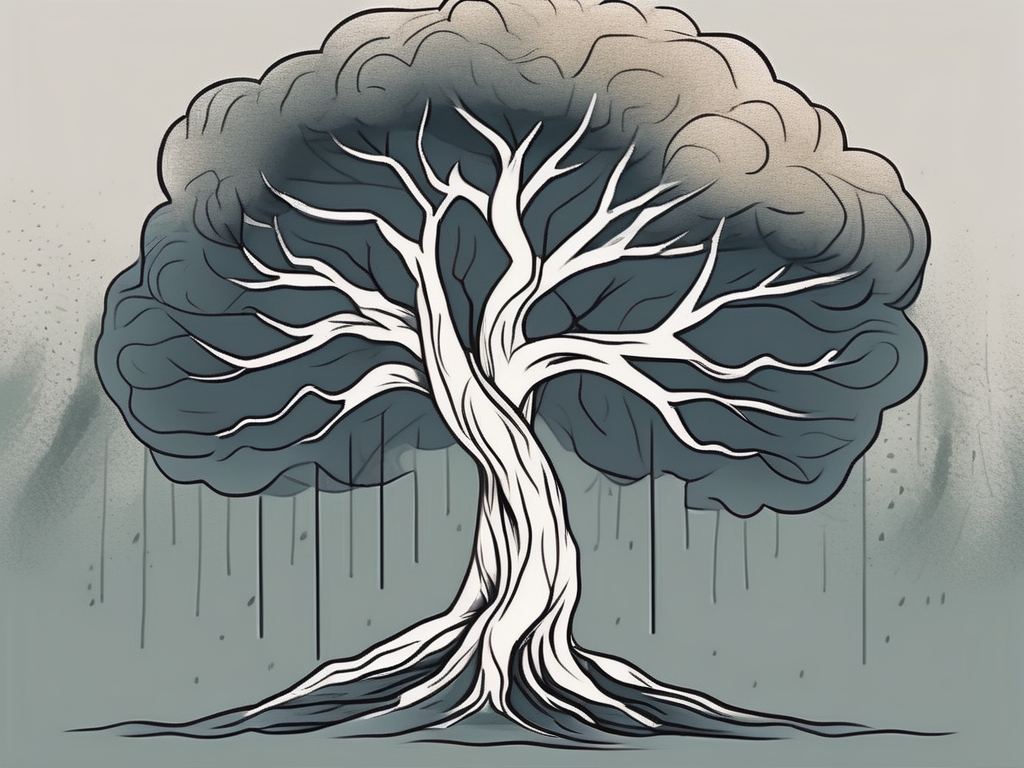Stoicism, an ancient philosophy that has withstood the test of time, offers valuable insights into how we can navigate the ups and downs of life with tranquility and resilience. By embracing the core principles of Stoicism, we can cultivate a sense of inner strength and wisdom that allows us to face adversity with grace. In this guide, we will explore the origins of Stoicism, its key principles, and its practical applications in modern society. Join us as we embark on a journey towards embracing the profound values of Stoicism for inner resilience.
Understanding Stoicism: A Brief History
Before delving into the core principles of Stoicism, it is helpful to understand its origins and key philosophers who shaped this school of thought.
Stoicism, a philosophy that has withstood the test of time, was born in ancient Greece, around the 3rd century BC. It was founded by Zeno of Citium, a man driven by a noble purpose – to provide people with a philosophy that could guide them towards a virtuous life and inner peace.
Zeno believed that happiness could be achieved by living in accordance with nature and developing one’s character through self-discipline. He saw the world as a harmonious whole, where everything is interconnected and governed by reason. This belief formed the foundation of Stoicism.
The Birth of Stoicism in Ancient Greece
Stoicism emerged in a time of great intellectual and cultural flourishing in ancient Greece. It was a period when philosophers sought to understand the nature of the universe and the purpose of human existence. Zeno, influenced by the teachings of Socrates and the Cynics, set out to create a philosophy that could provide practical guidance for individuals navigating the complexities of life.
With its emphasis on reason, virtue, and self-discipline, Stoicism resonated with many Greeks who were searching for a way to find meaning and tranquility in a world filled with uncertainty and turmoil.
As Stoicism gained popularity, it attracted followers from various walks of life – from merchants and politicians to artists and scholars. Its appeal lay in its practicality and its ability to offer solace and guidance in the face of adversity.
Key Philosophers of Stoicism
While Zeno is credited with establishing Stoicism, other philosophers played significant roles in the development and evolution of this philosophy. Figures such as Seneca, Epictetus, and Marcus Aurelius explored the practical applications of Stoicism in various aspects of life, leaving behind a rich legacy of wisdom.
Seneca, a prominent Stoic philosopher, focused on the importance of controlling one’s emotions and finding contentment in simplicity. His writings, filled with practical advice on how to live a virtuous life, continue to inspire individuals seeking to embrace Stoicism in the modern world.
Epictetus, a former slave turned philosopher, emphasized the power of the mind and the importance of accepting what is beyond our control. His teachings revolved around the idea that true freedom lies in our ability to cultivate inner peace and live in harmony with the natural order of the universe.
Marcus Aurelius, the Roman Emperor and Stoic philosopher, wrote extensively about the challenges of leadership and the pursuit of virtue. His Meditations, a collection of personal reflections, offer timeless insights into the human condition and the quest for moral excellence.
These philosophers, through their writings and teachings, continue to inspire and guide individuals seeking to embrace Stoicism today. Their wisdom serves as a reminder that Stoicism is not just a historical curiosity, but a philosophy that remains relevant and applicable in our modern lives.
Core Principles of Stoicism
Now that we have a brief understanding of Stoicism’s origins, let’s explore its core principles that form the foundation of this philosophy.
Stoicism, a school of Hellenistic philosophy founded in Athens by Zeno of Citium in the early 3rd century BC, offers a practical approach to life that emphasizes virtue, resilience, and inner peace.
The Four Virtues of Stoicism
At the heart of Stoicism are four virtues: wisdom, courage, justice, and temperance. These virtues serve as a guide for leading a virtuous and fulfilling life.
Wisdom encourages us to seek knowledge and understanding, not only of the world around us but also of ourselves. It invites us to question our assumptions, challenge our beliefs, and continuously learn and grow.
Courage, another essential virtue, empowers us to face challenges with resilience. It teaches us to confront our fears, take calculated risks, and persevere in the face of adversity. It is through courage that we can overcome obstacles and grow stronger.
Justice, a virtue deeply ingrained in Stoic philosophy, reminds us of the importance of fairness and kindness. It urges us to treat others with compassion, empathy, and respect. Justice calls for us to be mindful of our actions and their impact on the well-being of others.
Temperance, the fourth virtue, teaches moderation and self-control. It encourages us to find balance in all aspects of life, avoiding excess and indulgence. By practicing temperance, we can avoid the pitfalls of overindulgence and maintain a sense of equilibrium.
The Dichotomy of Control in Stoicism
Another fundamental concept in Stoicism is the dichotomy of control. According to this principle, we should focus only on what is within our control and accept the things that are not.
Life is filled with circumstances and events that are beyond our influence. Stoicism teaches us to recognize this reality and shift our focus towards cultivating inner resilience and finding peace amidst chaos.
By acknowledging that external circumstances are often beyond our control, we free ourselves from unnecessary worry and anxiety. Instead, we can direct our energy towards developing our character, cultivating virtue, and nurturing our inner selves.
Stoicism invites us to embrace the present moment, to accept what cannot be changed, and to focus on what truly matters: our thoughts, actions, and attitudes. Through this practice, we can find tranquility and live a life of virtue and fulfillment.
The Role of Stoicism in Modern Society
Stoicism’s principles are not limited to ancient times; they have practical applications in our modern society as well.
Stoicism, a philosophy that originated in ancient Greece, has found a place in the hearts and minds of individuals seeking guidance and wisdom in the complexities of the modern world. Its teachings offer valuable insights into various aspects of life, including mental health, leadership, and decision-making.
Stoicism and Mental Health
Many aspects of Stoicism can aid in the cultivation of mental well-being. By embracing the philosophy’s teachings, individuals can develop a more resilient mindset, finding inner peace even in the face of stressful situations.
One of the core practices of Stoicism is negative visualization, which involves imagining the worst-case scenarios in life. This exercise helps individuals prepare themselves mentally for adversity, reducing the fear and anxiety associated with unexpected challenges. By confronting their fears through this practice, Stoics learn to appreciate the present moment and find gratitude for what they have.
Furthermore, the practice of gratitude is another powerful tool in the Stoic toolbox. By regularly expressing gratitude for the simple pleasures and blessings in life, individuals can shift their focus from what they lack to what they have. This shift in perspective can significantly reduce anxiety and stress, promoting mental well-being.
Stoicism in Leadership and Decision-Making
Stoicism’s emphasis on reason and ethics makes it a valuable philosophy for leaders and decision-makers. By adhering to Stoic principles, leaders can make more ethical decisions and navigate challenging situations with clarity and purpose.
Leaders who embrace Stoicism prioritize the well-being and growth of their teams. They understand that leadership is not about exerting power and control but about serving others and fostering an environment that promotes resilience and personal development. Stoic leaders lead by example, demonstrating virtues such as integrity, humility, and compassion.
Moreover, Stoicism teaches leaders to focus on what they can control and accept what they cannot. This mindset allows them to make rational decisions based on the available information, rather than being overwhelmed by external factors beyond their control. Stoic leaders are not easily swayed by emotions or external pressures, enabling them to make decisions that align with their values and the greater good.
In conclusion, Stoicism’s relevance in modern society cannot be overstated. Its teachings offer valuable insights into mental well-being, leadership, and decision-making. By embracing Stoic principles, individuals can cultivate resilience, find inner peace, and make ethical decisions that contribute to the betterment of society.
Practical Applications of Stoicism
Stoicism is not merely a theoretical philosophy; it offers practical guidance on how to embrace its principles in our daily lives.
But what does it really mean to embrace Stoicism in our daily lives? How can we integrate its teachings into our routines and experience meaningful changes in our mindset and behavior?
Embracing Stoicism in Daily Life
Integrating Stoicism into our daily routines can lead to profound transformations. It starts with practicing mindfulness, which involves being fully present in the current moment and aware of our thoughts and emotions. By cultivating this awareness, we can begin to identify any negative or irrational thinking patterns that may be causing us distress.
Reflecting on our values is another crucial aspect of embracing Stoicism. By clarifying what truly matters to us and aligning our actions with our values, we can live a more authentic and fulfilling life. This process of self-reflection allows us to make conscious choices and avoid being swayed by external pressures or societal expectations.
Living in accordance with reason is a fundamental principle of Stoicism. It involves using our rationality to guide our actions and decisions, rather than being driven by impulsive desires or emotions. By cultivating this rational mindset, we can make more informed choices and avoid unnecessary conflicts or regrets.
By practicing mindfulness, reflecting on our values, and living in accordance with reason, we can experience increased tranquility and happiness. Stoicism teaches us to find contentment in the present moment and to accept the things we cannot control, allowing us to focus on what is within our power to change.
Stoicism and Personal Growth
Stoicism goes beyond offering guidance for daily life; it also encourages continuous personal growth and self-improvement. By cultivating virtues such as discipline, resilience, and gratitude, we can strive to become the best versions of ourselves.
Discipline plays a crucial role in Stoicism. It involves setting clear goals and working diligently towards them, even when faced with obstacles or distractions. By practicing discipline, we can develop a strong work ethic and achieve long-term success.
Resilience is another virtue emphasized by Stoicism. It teaches us to embrace challenges as opportunities for growth and to approach setbacks with perseverance and a positive mindset. By cultivating resilience, we can bounce back from adversity and learn valuable lessons from our experiences.
Gratitude is yet another virtue that Stoicism encourages. By cultivating a sense of gratitude, we can shift our focus from what is lacking in our lives to what we already have. This mindset shift allows us to appreciate the present moment and find joy in the simple pleasures of life.
By embracing these virtues and incorporating them into our daily lives, we can experience personal growth and become more resilient, disciplined, and grateful individuals.
Stoicism offers a practical philosophy that can guide us in our pursuit of a meaningful and fulfilling life. By integrating its principles into our routines and embracing personal growth, we can unlock our full potential and live a life of purpose and tranquility.
The Path to Inner Resilience through Stoicism
At its core, Stoicism offers a path to developing inner resilience that can withstand the trials and tribulations of life.
Building Emotional Resilience with Stoicism
By practicing Stoic exercises, such as negative visualization and journaling, we can build emotional resilience that allows us to navigate difficult emotions and maintain inner calm.
Stoicism teaches us to remain steadfast in the face of adversity, acknowledging our emotions but not allowing them to overwhelm or control us.
Stoicism as a Tool for Stress Management
Stoicism provides practical techniques to manage stress and cultivate a sense of inner peace. By focusing on what is within our control, letting go of attachments to external outcomes, and embracing the present moment, we can reduce stress and live more fulfilling lives.
By embracing Stoicism and its profound values, we can find solace in the face of life’s challenges, nurture our inner resilience, and forge a path towards a more meaningful and fulfilling existence.












